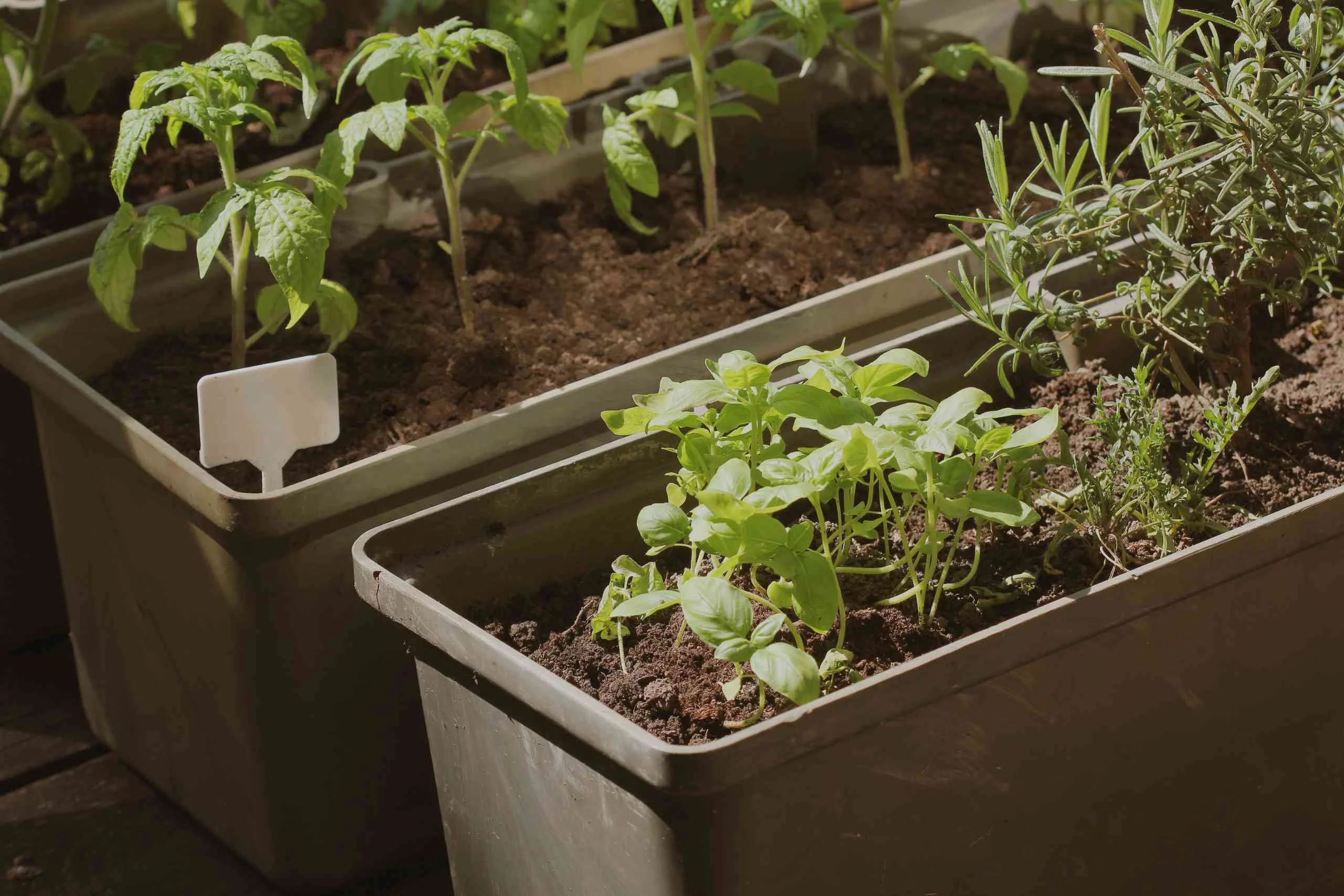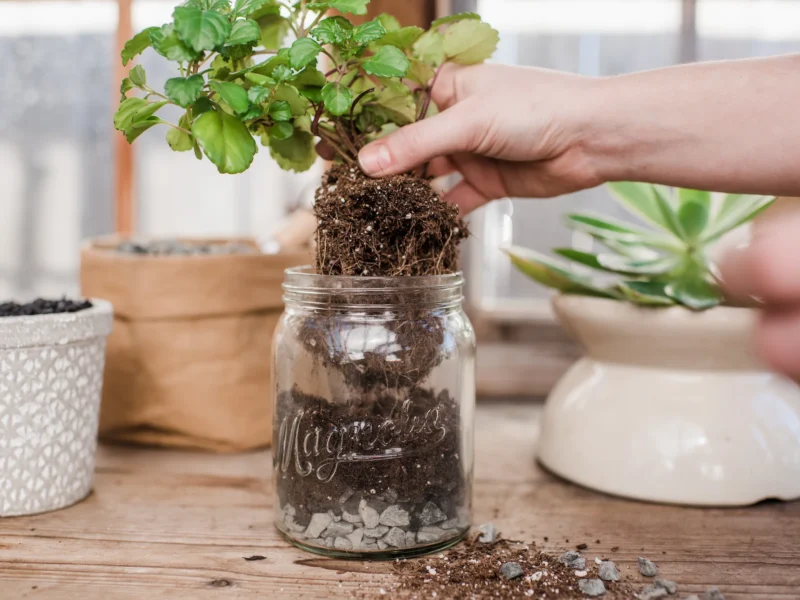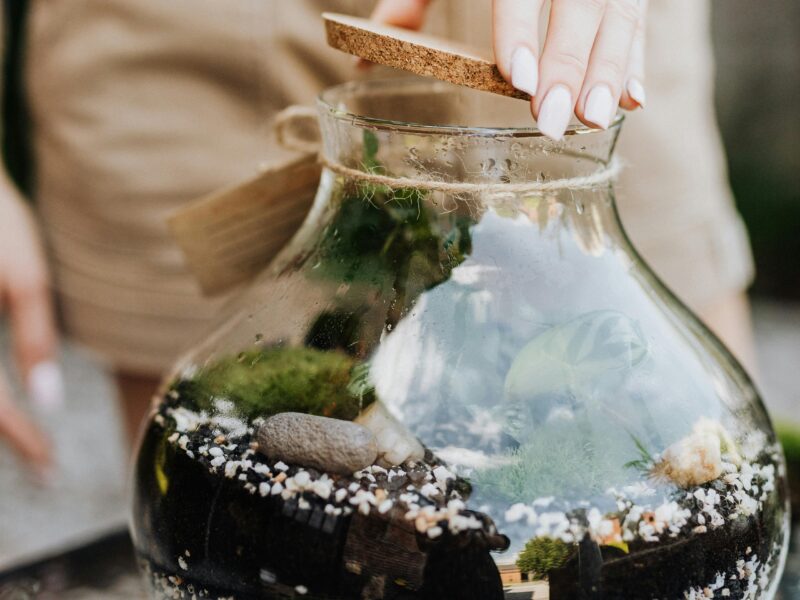Herb gardens in containers are ideal for small spaces and easy to manage. They offer fresh herbs year-round.
Herb gardens in containers are perfect for urban living and small spaces. These compact gardens let you grow a variety of herbs, such as basil, mint, and rosemary, right on your balcony, patio, or even windowsill. Container gardening is convenient and requires minimal space while providing fresh herbs for cooking.
Choosing the right containers, soil, and proper drainage ensures healthy growth. Regular watering, sunlight, and occasional fertilizing keep the herbs thriving. Container herb gardens are also mobile, allowing you to move them as needed for optimal sunlight or protection from harsh weather. This gardening approach is ideal for both beginners and seasoned gardeners.
The Allure Of Container Herb Gardening
Container herb gardens save space. You can place them on balconies, patios, or windowsills. They are perfect for small homes or apartments. You can move containers easily. This helps to catch the best sunlight.
Different herbs can grow in the same container. This adds variety and color to your garden. You can also switch the herbs each season. This keeps your garden fresh and exciting.
Herb gardens in containers create a lovely aroma. The scent from herbs like basil, mint, and rosemary is soothing. The fragrance can improve your mood. It also makes your home smell wonderful.
These gardens also look beautiful. They add green, lush beauty to any space. The different shapes and colors of herbs make your garden look lively. It is a feast for the eyes and the nose.
Selecting Containers For Your Herbs
Plastic containers are lightweight and cheap. But they can crack in the sun. Terra cotta pots are pretty and breathable. They help keep soil dry but can be heavy and break easily. Metal containers are very durable. They can get hot in the sun and harm the roots. Wooden pots look nice and keep the soil cool. They can rot if not treated properly. Stone containers are strong and keep soil cool but are very heavy.
Good drainage is very important for herb containers. Holes at the bottom let water escape. This stops roots from rotting. Depth is also very important. Herbs need at least 6 inches of soil. Some herbs like basil need more space. Deep containers allow roots to grow well.
Choosing The Right Herbs For Containers
Basil is great for container gardens. It grows well in small spaces. Mint is another good choice. It spreads quickly, but containers keep it in check. Parsley is easy to grow in pots. It needs only basic care. Chives can thrive in containers too. They don’t need much space.
Most herbs need lots of sunlight. Place your containers in sunny spots. Basil and rosemary love the sun. Parsley and mint can tolerate some shade. Herbs also need proper watering. Too much water can harm them. Make sure your containers have drainage holes. This helps keep roots healthy.
Soil And Fertilization Secrets
Choose a lightweight potting mix. Ensure it drains well. Add perlite or vermiculite for better drainage. Coconut coir can help retain moisture. Include compost for nutrients. Avoid using garden soil alone.
Use compost tea as a liquid fertilizer. Sprinkle worm castings on the soil. Fish emulsion is great for herbs. Apply seaweed extract for trace minerals. Bone meal helps roots grow strong. Make sure to avoid chemical fertilizers. These can harm your herbs.
Planting And Spacing Techniques
Proper spacing is very important for herb gardens in containers. Herbs need room to grow. Crowded plants will not thrive. They compete for water and nutrients. Give each herb its own space. Use small containers for single plants. Larger pots can hold multiple herbs. Keep at least 6 inches between small herbs. Larger herbs need about 12 inches apart.
Layering helps in growing more herbs in one container. Plant taller herbs in the center. Surround them with shorter herbs. This allows all plants to get sunlight. Companion planting is also helpful. Some herbs grow better together. Basil and tomatoes are good friends. Mint and rosemary grow well together. Avoid planting dill near carrots. They do not grow well together.
Ongoing Care And Maintenance
Herbs need water to grow well. Water them when the soil is dry. Use a watering can with a gentle spray. This helps the water soak in slowly. Overwatering can hurt the plants. Make sure the container has drainage holes. This allows extra water to escape. Herbs like moist, but not soggy, soil.
Prune herbs to keep them healthy. Use clean scissors or shears. Cut just above a leaf node. This helps new growth to sprout. Harvest herbs often. This encourages more growth. Pick leaves in the morning for best flavor. Avoid taking more than one-third of the plant. This keeps the herb strong and productive.
Pest Control And Organic Solutions
Herb gardens often attract pests. Aphids are small and green. They suck sap from plants. Spider mites are tiny and red. They leave webs on leaves. Caterpillars chew on leaves and stems. Whiteflies are tiny and white. They fly around when disturbed. Slugs and snails leave slimy trails and eat leaves. Keep a close eye on your plants. Early detection helps protect your garden.
Neem oil works well against many pests. Spray it on the leaves. Garlic spray repels insects. Mix garlic with water and spray it. Soap water kills pests on contact. Use mild soap and water. Companion planting helps too. Plant basil near tomatoes to repel insects. Handpicking pests is effective. Remove them and keep your plants safe.
Winterizing Your Container Herb Garden
Move herb containers inside before the first frost. Find a sunny spot near a window. Herbs need at least six hours of light each day. Use grow lights if there is not enough natural light. Water herbs less in winter. The soil should be slightly dry before watering again. Trim herbs regularly to keep them healthy. Check for pests often. Indoor air can be dry, so mist herbs occasionally.
Wrap containers in bubble wrap or burlap to keep roots warm. Move containers to a sheltered spot, away from strong winds. Elevate pots off the ground with bricks or wood. This helps with drainage and prevents freezing. Mulch the top of the soil with straw or leaves. This keeps the soil temperature stable. Water plants well before the first frost. Moist soil holds heat better than dry soil.
Recipes And Uses For Your Homegrown Herbs
Fresh herbs can make any dish special. Add basil to your pasta for a fresh taste. Use rosemary on roasted potatoes for a fragrant flavor. Mint leaves can turn a simple salad into a gourmet dish. Cilantro is perfect for tacos or salsa. Thyme goes well with chicken and fish. Parsley is great for garnishing almost anything.
Herbal teas are easy to make at home. Brew chamomile for a calming effect. Peppermint tea can help with digestion. Lavender tea is perfect for relaxation. Lemon balm can boost your mood. Sage tea has antibacterial properties. Rosemary tea can improve memory.
Expanding Your Container Garden
Adding new herbs to your garden can be exciting. Basil, mint, and rosemary are great choices. They grow well in containers and smell amazing. Try planting thyme and oregano too. These herbs add flavor to your dishes. Sage and parsley are also easy to grow. They thrive in small spaces. Each herb has its own unique taste. Experiment with different combinations. Your garden will look beautiful and colorful.
Choose herbs that suit your climate. Some herbs like lavender need lots of sun. Cilantro prefers cooler weather. Mix herbs with different needs for a balanced garden. Chives and dill can grow in partial shade. Lemon balm is perfect for a fragrant garden. Herbs like tarragon and marjoram offer unique flavors. Adding variety makes your garden more interesting. You’ll have fresh herbs all year round.
Try companion planting to help herbs grow better. Plant basil near tomatoes. It helps repel insects. Use vertical gardening to save space. Stack pots or use hanging baskets. Pruning helps herbs stay healthy. Cut back old growth to encourage new leaves. Use organic fertilizers for better growth. Mulching helps retain soil moisture. It also keeps weeds away. Rotate your herbs each season. This prevents soil depletion. Keep experimenting with new techniques. Your herb garden will thrive.
Container herb gardens offer an easy and versatile way to grow fresh herbs. They fit perfectly in small spaces. Enjoy the convenience of having your favorite herbs within reach. Start your container herb garden today and experience the joy of fresh, homegrown flavors in your meals.
Happy gardening!


